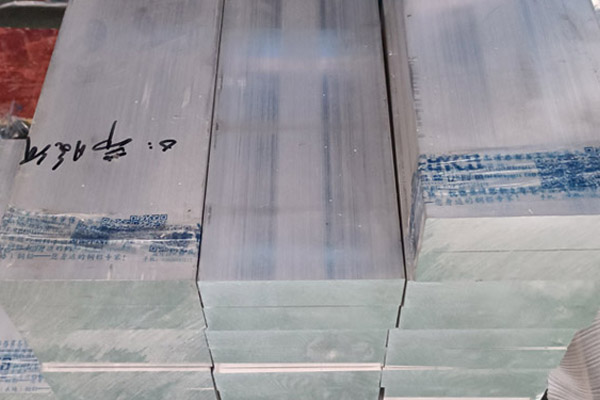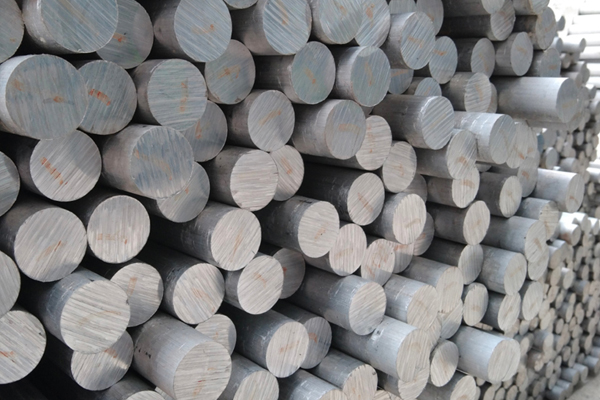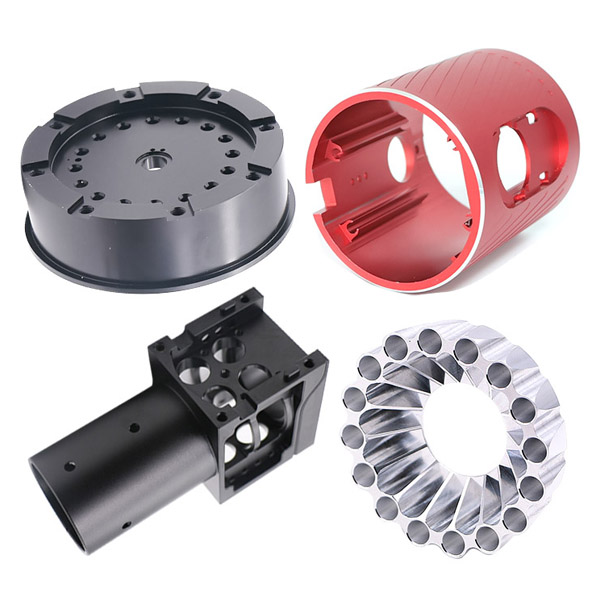15 years one-stop China custom CNC machining parts factory

Hey there I’m VMT Sam!
With 25 years of CNC machining experience we are committed to helping clients overcome 10000 complex part-processing challenges all to contribute to a better life through intelligent manufacturing. Contact us now
 209 |
Published by VMT at May 21 2024
209 |
Published by VMT at May 21 2024
I. Introduction
In the field of CNC machining parts manufacturing, aluminum alloys are highly favored for their lightweight, corrosion resistance, and excellent mechanical properties. Among them, 6061 and 7075 aluminum alloys are two commonly used materials. However, due to their different chemical compositions, mechanical properties, and machining characteristics, choosing the appropriate aluminum alloy material is crucial for the success of your project. This article will provide a detailed overview of the characteristics, differences, applications, and selection methods of 6061 and 7075 aluminum alloys, helping readers better understand these two materials and make informed decisions for their projects.
II. Overview of 6061 Aluminum Alloy
6061 aluminum alloy is a high-quality aluminum alloy produced by heat treatment and pre-stretching process. Its main alloying elements are magnesium and silicon, with small amounts of manganese, chromium, copper, and zinc. This alloy has good formability, weldability, machinability, and moderate strength. Even after annealing, 6061 aluminum alloy maintains good workability, making it an ideal material widely used in construction, automotive, marine, furniture, and mechanical parts industries.

III. Overview of 7075 Aluminum Alloy
7075 aluminum alloy is a cold-treated forging alloy known for its high strength and hardness. It is one of the strongest commercial alloys, with zinc as its main alloying element, and small amounts of magnesium and copper. The fine grain structure of this alloy enhances its deep drilling performance, tool wear resistance, and unique thread rolling. Due to its excellent strength and lightweight characteristics, 7075 aluminum alloy is widely used in aerospace, mold manufacturing, and mechanical equipment industries.

IV. 6061 vs. 7075 Aluminum: Differences
Alloy Series and Chemical Composition:
6061 aluminum alloy belongs to the 6 series aluminum alloy, with magnesium and silicon as its main alloying elements.
7075 aluminum alloy belongs to the 7 series aluminum alloy, with zinc as its main alloying element. This difference in chemical composition results in significant differences in their mechanical properties and machining characteristics.
Mechanical Properties:
Strength: The strength of 7075 aluminum alloy is much higher than that of 6061 aluminum alloy, comparable to some steel grades, making it the preferred choice for applications requiring high strength.
Ductility and Toughness: In comparison, 6061 aluminum alloy has better ductility and toughness, making it more suitable for manufacturing components requiring certain bending and deformation.
Corrosion Resistance: 6061 aluminum alloy has good corrosion resistance and can resist corrosion by forming a dense oxide film. While 7075 aluminum alloy also has certain corrosion resistance, its high zinc content may make it more sensitive to certain specific environments, requiring additional corrosion protection measures.
Manufacturing Considerations:
Machining Difficulty: Due to its high hardness and melting point, 7075 aluminum alloy is relatively difficult to machine and requires more specialized equipment and processes. On the other hand, 6061 aluminum alloy has lower machining difficulty and is suitable for various machining methods.
Weldability: 6061 aluminum alloy has good weldability, while the welding difficulty of 7075 aluminum alloy is higher, prone to issues such as cracking and deformation.
V. Applications of 6061 and 7075 Aluminum
6061 Aluminum Alloy: Due to its good overall performance, 6061 aluminum alloy is widely used in construction, automotive, marine, furniture, and mechanical parts industries. It can be used to manufacture door and window frames, automotive components, ship structures, and various mechanical parts.
7075 Aluminum Alloy: The high strength and lightweight characteristics of 7075 aluminum alloy make it particularly suitable for aerospace, mold manufacturing, and mechanical equipment industries. It is commonly used to manufacture aircraft structures, bicycle frames, and high-end sports equipment requiring high strength and low weight.

VI. Choosing Between 6061 and 7075 Aluminum
When choosing between 6061 and 7075 aluminum alloys, it is essential to consider the specific requirements and performance demands of the project. If the project requires high strength and lightweight materials, and corrosion resistance is not a primary concern, then 7075 aluminum alloy is the better choice. However, if the project requires higher ductility, toughness, corrosion resistance, or better weldability, then 6061 aluminum alloy is more suitable.
VII. In-Depth Comparison of 6061 and 7075 Aluminum
In addition to the basic characteristics and applications mentioned above, we can further compare 6061 and 7075 aluminum alloys from the following aspects:
Strength-to-Weight Ratio:
7075 aluminum alloy has a significant advantage in the strength-to-weight ratio due to its high strength and lightweight characteristics. This makes it the preferred choice for applications requiring high load-bearing capacity and low weight, such as aerospace and high-end sports equipment.
Although 6061 aluminum alloy also has a good strength-to-weight ratio, it may not be as ideal as 7075 aluminum alloy for certain specific applications.
Heat Treatment and Weldability:
6061 aluminum alloy responds well to heat treatment and has good weldability, making it more convenient for applications requiring welding or heat treatment.
In contrast, 7075 aluminum alloy has poor heat treatment and weldability, requiring special welding processes and heat treatment equipment, which increases processing difficulty and cost.
Corrosion Resistance:
6061 aluminum alloy has good corrosion resistance and can maintain stable performance in various environments.
While 7075 aluminum alloy also has certain corrosion resistance, its high zinc content may lead to corrosion issues in specific environments.
Surface Treatment:
Both 6061 and 7075 aluminum alloys support various surface treatment methods, such as anodizing and spraying, to improve their appearance and performance.
However, more professional techniques and equipment may be required for surface treatment of 7075 aluminum alloy.
VIII. Choosing Between 6061 and 7075 Aluminum
When choosing between 6061 and 7075 aluminum alloys, besides considering the specific requirements and performance demands of the project, the following factors should also be taken into account:
Cost: The price of 7075 aluminum alloy is usually higher than that of 6061 aluminum alloy due to its higher strength and hardness, as well as the greater manufacturing difficulty.
Machining Difficulty: The machining difficulty of 7075 aluminum alloy is greater than that of 6061 aluminum alloy, which may require more specialized equipment and processes. If the project requires higher machining precision and efficiency, 6061 aluminum alloy may be preferred.
Operating Environment: If the project needs to operate in harsh environments such as high humidity or high corrosion, it is necessary to choose 6061 aluminum alloy with better corrosion resistance.
IX. VMT's Manufacturing Capability
VMT CNC machining factory has advanced CNC machining equipment and technical team, capable of providing professional CNC machining services for 6061 and 7075 aluminum. We have rich machining experience and technical strength to meet the needs of customers for high-precision and high-efficiency machining parts. At the same time, we also provide personalized solutions and quality after-sales service to ensure that customers receive satisfactory products and services.

X. FAQ about 6061 and 7075 Aluminum
Which is more expensive, 6061 aluminum alloy or 7075 aluminum alloy?
Generally, 7075 aluminum alloy is more expensive than 6061 aluminum alloy due to its higher strength, hardness, and greater manufacturing difficulty.
Which one is easier to machine, 6061 aluminum alloy or 7075 aluminum alloy?
6061 aluminum alloy is easier to machine than 7075 aluminum alloy due to its lower hardness and better ductility and toughness.
XI. Conclusion
In summary, 6061 and 7075 aluminum alloys each have their unique advantages and suitable applications. When choosing, it is necessary to balance the specific requirements of the project with performance considerations. Additionally, factors such as cost, machining difficulty, and operating environment should be taken into account. VMT CNC machining factory is committed to providing professional CNC machining services and technical support to help you achieve the success of your project.
Ready To Start Your Next Project?
Get Instant Quote

Request a Free Quote
Send us a message if you have any questions or request a quote. We will get back to you ASAP!